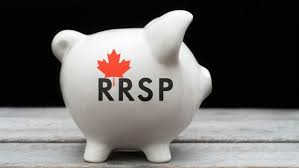 Settling your debt can be relieving. Often, you’ll be able to settle for a lesser amount than you owed in the first place, and your new payment plan can be much less stressful on your finances. There are some mistakes that are often made though when people settle their debt, so we’ve created a list of six common mistakes and how you can avoid them.
Settling your debt can be relieving. Often, you’ll be able to settle for a lesser amount than you owed in the first place, and your new payment plan can be much less stressful on your finances. There are some mistakes that are often made though when people settle their debt, so we’ve created a list of six common mistakes and how you can avoid them.
1. Not Accounting For All Of Your Debt
One of the biggest mistakes people make when settling debt is not accounting for all of their debt. It’s important to get a hold of your credit report when you begin to consider negotiations for a settlement. That way you’re aware of all the debt you owe and to whom it is owed.
You’re entitled to one free credit report every twelve months. Be wary of sites that promise free credit reports. Never give away your financial or personal information to a site that isn’t verified or peer reviewed.
Often you can consolidate all of your debt if you’ve tracked it all. Having access to a credit report makes this much simpler, as sometimes smaller debts can fall through the cracks. You may want to consider an attorney if you owe large sums of money, however. Things get a little trickier when a lot of debt is involved.
2. Going It Alone
Debt, debtors, and the laws regarding them can be tricky and difficult to navigate on your own. If you owe a few thousand dollars, you may be able to figure it out on your own, but if you’ve got a substantial amount under your belt you should probably seek some help.
There are debt attorneys and consolidation services by the thousands. There are bound to be dozens of them in your area, but the thing to remember is that they’re out to make money as well. So shop around, compare fees and interest rates for consolidation loans before you make a decision.
A debt attorney can be a useful asset when negotiating with your creditors. They’ll know their way around the laws, and will be able to tell if something is wrong or even illegal. It’s not unknown for creditors to use unsavory tactics to make you pay your debts.
You should also do some research on the subject before you consider debt consolidation, attorneys, or any other avenues. Sites like Getoutofdebt.com are excellent resources for financial information.
3. Not Knowing The Difference Between Programs
“Debt relief” is truly a loose term. It can apply to several different options, such as credit counseling, (which credit card companies often pander) consolidation, and more. It’s important to know the difference between the various programs so you can choose the one that best fits your needs.
Credit counseling is simply a program that helps you figure out how to better manage your finances. This includes budgeting and creating better spending habits.
Debt consolidation is usually a personal loan that you’ll take out in order to pay off all of your debt. The amounts you owe will be grouped into a lump sum, on which you’ll make a single monthly payment.
Debt settlement is the process of reaching a settlement with your collectors, usually for a lower amount than you originally owed.
4. Letting The Collectors Intimidate You
Collectors can become a bit aggressive with you when trying to collect a debt. It’s not uncommon for them to try and pressure you into automatic monthly payments, short payment plans, or other programs that are more beneficial to them than to you.
Ultimately, the collectors are attempting to recover as much of the principal balance as possible. They’ll use any tactics of persuasion that may convince you to agree to their terms (hopefully within the law). Creditors are not allowed to use harassing or bullying language, but unfortunately, that doesn’t always stop them.
Don’t be intimidated by your creditors. This is when it’s a good idea to have an attorney. If you feel harassed, bullied, or otherwise unnecessarily intimidated by a creditor, you can report them to the Consumer Finance Protection Bureau.
5. Settling For A Large Amount
The idea behind settling your debt is to pay a significantly less amount than you originally owed. If you find that your creditors won’t settle for anything less than the full amount or an amount that’s only slightly less than the original, don’t settle for it right away.
This goes hand in hand with the harassment and bullying that collectors sometimes employ. They’ll say things like “this is the only amount we’ll take” to try and make you pay an amount on their terms.
Never settle until you’ve fully researched all of your options, and preferably spoken to a professional of some sort.
6. Not Having A Plan In Place
If you can settle your debts for a lesser amount, you’re on the right track to getting out of debt. However, if you don’t address what got you into debt in the first place, you’ll be right back in the same position a few months later.
Perhaps you’ve just got bad spending habits. Maybe you just borrow more than you need. You might be sure what the difference is between a want and a need when it comes to borrowing money.
A little education and preparation can go a long way in remedying these issues. Try to live within your means. Sometimes you just can’t afford that new watch or pair of shoes, and that’s alright. You need to ask yourself if those shoes or that new flat screen is worth going into debt over.




No Comments